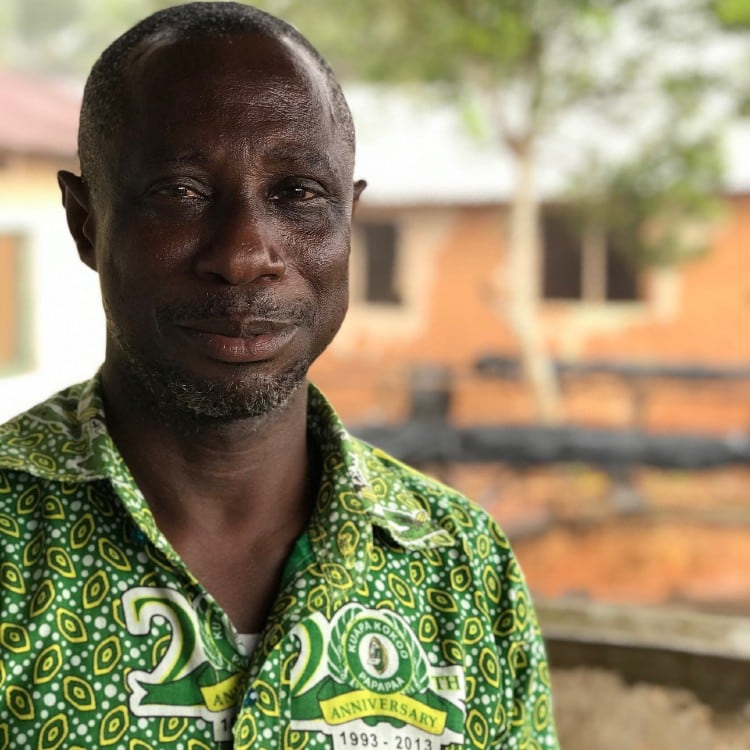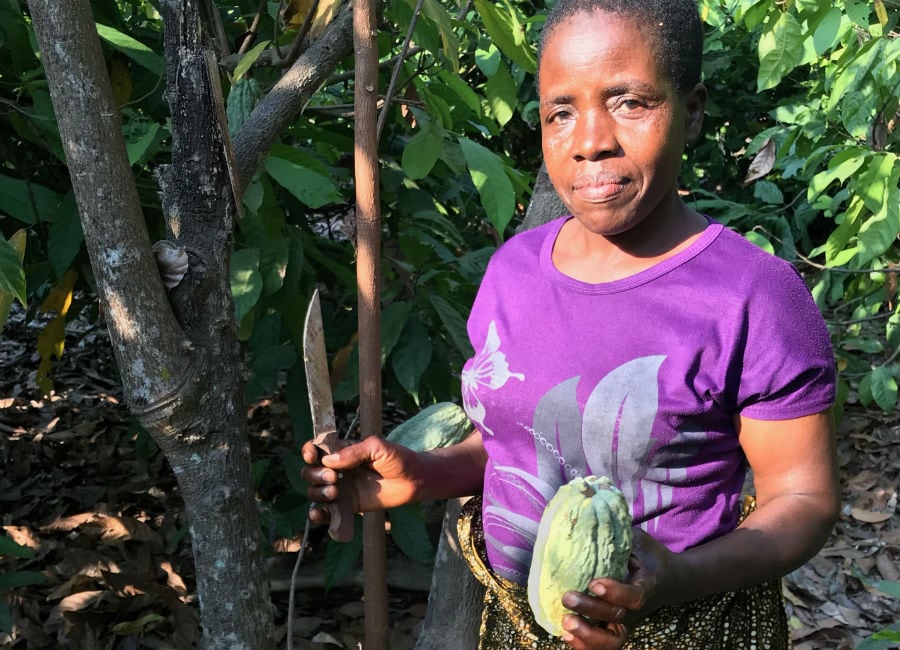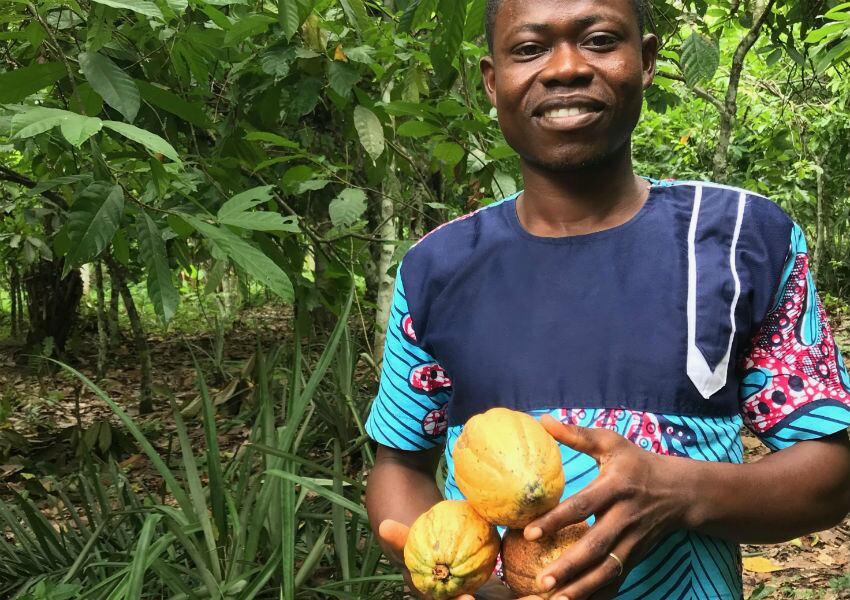The village of Susanso, in Ghana’s Western Region, takes its name from the nearby Susan stream. But people who live there call it Camp A. Close to the border with Cote d’Ivoire, Susanso is surrounded by a forest of valuable timber trees. Akuapem migrants, from the east, had settled the area; one of them, a timber contractor, used the place as his camp. Nearby, another contractor established a settlement that came to be called Camp B.
Susanso seemed relatively prosperous. It was on the power grid, and had amenities not common to rural villages, including a sports field and several stalls selling sundry processed goods. The backyard gardens were lush with coconut and orange, plantain and sweet apple, avocado and mango. There was plenty of cassava, and the root crop that farmers sometimes call “under cocoa,” because its vine emerges from beneath cocoa trees. The borehole wasn’t working, but the Susan stream was just five minutes’ walk away.
I want to build my own house for my wife and my children to live in. What happens at the point when you are very old, and you are not able to work on your cocoa? At that time, you need to really settle with your wife and children at one place -- Daniel Aboagye, cocoa farmer
When I first spent time in the area, in 2005, it was one of Ghana’s most productive cocoa regions - no doubt a contributing factor to its development. On this visit, though, I didn’t feel the same cocoa energy.
I met Daniel Aboagye at the Kuapa Kokoo buying shed. Kuapa Kokoo is one of the dozen or so licensed cocoa buying companies (LBCs) in Ghana with significant market share. Aboagye is the company’s recorder for his area, which means he buys cocoa from farmers on its behalf. (Kuapa Kokoo is the only LBC that calls this position “recorder”; the rest call it a purchasing clerk.) In Aboagye’s case, he also buys cocoa from himself: he too is a cocoa farmer.
Like many of his Akuapem kinspeople, Aboagye’s family had migrated across Ghana in search of farmland. His grandfather had moved first to the Brong Ahafo Region, in 1955. But the land was tired there, so in 1977 he moved to the Western Region. “It was fresh here. It was a huge forest,” Aboagye said, full of tall timber trees: odum, mahogany, onyina, ofram. “Even [on my farm], I had to cut the big trees before working on it.”
His grandfather had secured sixteen acres, not far from where we were sitting. In 1987, Aboagye entered into an abunu contract with him, which gave Aboagye a certain timeframe in which to establish cocoa trees on the land. If he was successful, six and a half of his grandfather’s acres would become his own.
I asked Aboagye how he felt when he was planting his cocoa, and how his grandfather felt. “By all means, we were optimistic,” he said. “Farming wasn’t as difficult then as it is today. So we were optimistic that things were going to be better.”
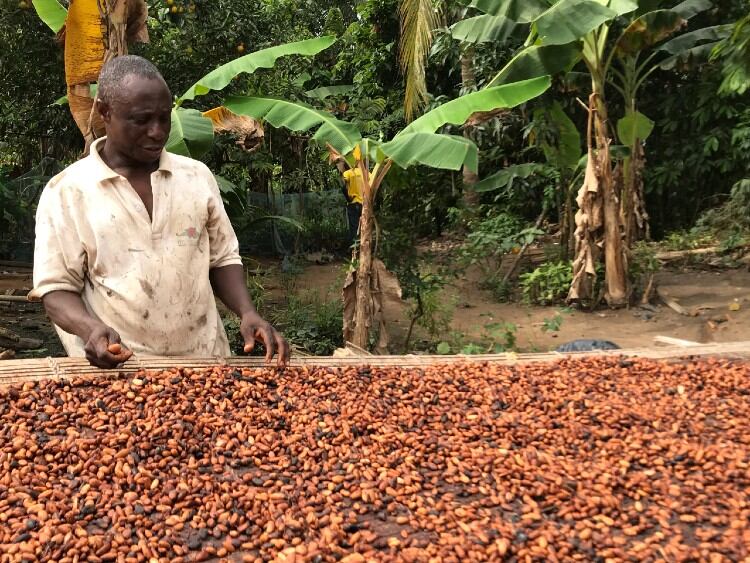
Things did get better for Aboagye. His trees matured, and his yields grew. In 2012, Kuapa Kokoo conducted an agricultural extension programme that Aboagye called “a high tech.” The cooperative brought fertilizer and pesticides, and conducted training on pruning. Smallholders can be reluctant to prune their trees, but Aboagye embraced it. “We didn’t really know what was going to be the outcome,” he recalled, “but we were not scared. Kuapa helped.”
Aboagye’s land yielded an all-time high of 80 bags. (Bags of cocoa in Ghana are standardized to sixty-four kilograms gross weight.) The number of bags per acre is often in the single digits here, and that year Aboagye’s average was more than twelve. But since 2012, his yields have decreased every season.
“I realized that I was supposed to continue with what Kuapa had trained us to do,” he explained, “but there wasn’t enough strength to go about it. There wasn’t enough money to continue. I didn’t know that there was going to be this decrease.”
Climate change
We couldn’t get enough rain to get the plants to grow
Climate change has exacerbated Aboagye’s challenges. Normally, Ghana would be in its short rainy season, which gives a final blooming burst to the maturing cocoa, on the verge of its main harvest. But it hadn’t rained for three months. Aboagye told me that, for the past five years, weather patterns had become unpredictable. “The period that we expected the sun,” he said, “it wasn’t really sunny. And when we expected rain, it was really, really sunny. So we couldn’t get enough rain to get the plants to grow.”
Though Aboagye’s farm now yields about half its 2012 peak, he still grows an enviable amount of cocoa. Last season, he sold 46 bags. In 2019/-0, Ghana Cocoa Board set a price per bag of GH¢515 (US$89), so Aboagye earned GH¢23,690 (US$4096). As a Fairtrade-certified producer organization, Kuapa Kokoo can set aside a portion of the Fairtrade Premium as a cash bonus to farmer members. Last season, Kuapa paid a bonus of GH¢14 (US$2.42) per bag, bringing Aboagye’s gross cocoa earnings to GH¢24,334 (US$4208).
Aboagye can’t do all that farm work on his own. He hires two part-time labourers during the main harvest, often the same men year after year. Together, they go to the farm around seven in the morning, and spend six hours harvesting and breaking pods, and creating fermentation heaps. They harvest for a week, then rest while the cocoa is drying on raffia mats. They return to repeat the process five more times. Hiring a day labourer costs Aboagye GH¢20 (US$3.46), plus another five cedis per day for food. In total, he pays GH¢1500 (US$259) for two labourers to work with him for six weeks.
Aboagye must also pay to transport his cocoa to the buying shed. (“That’s a big issue,” he said.) He could carry it in bowls of woven raffia, but the walk is more than half an hour. Instead, he hires a motorbike driver, who can transport half a bag per trip, for GH¢10 (US$1.73). Last season, his transport costs totaled GH¢920 (US$159). After labour and transport, Aboagye netted GH¢21,914 (US$3789) from his cocoa.
This amount sits comfortably at the higher end of the earnings range that cocoa farmers in Ghana have described to me over 15 years of research. But that does not mean Aboagye is at ease, financially. He has no other income, and many responsibilities. First and foremost among these is his family.
Aboagye and his wife, Comfort, have two children: Rose, who is sixteen, and Festus, who is almost nine. Both stay with Comfort in Koforidua, capital of the Eastern Region, on the other side of Ghana. It is not uncommon among families of Akuapem migrants for a wife and children to live back “home,” as it were, while the husband maintains the farm.
Comfort and the children have another reason for staying in Koforidua, which is a large town with many amenities. Rose is deaf, and attends a school for deaf children there. Her brother studies at a different school - Festus wants to be a doctor - along with several cousins. In addition to supporting his own children, Aboagye looks after one of his nephews, two of his wife’s nephews, and one of her nieces.
“Cocoa,” he said, “pays for everything.”
Aboagye rents a house in Koforidua for Comfort and the children. When I asked him to describe his most pressing need, he replied, “I want to build my own house for my wife and my children to live in. What happens at the point when you are very old, and you are not able to work on your cocoa? At that time, you need to really settle with your wife and children at one place.”
One day, Aboagye will retire from farming, hire a long-term caretaker for the land, and move to Koforidua too. For now, he visits his family often. Driving directly from Susanso to Koforidua would take around nine hours. Aboagye’s journey will be much longer, and require several taxi changes, but he does it whenever he can.
Aboagye described mixed feelings when it came to the benefits of growing cocoa, for himself and for Ghana. More than once, he emphasised that he became a cocoa farmer because he could not continue his education. He had no other livelihood option, and, at the time, “many people were planting cocoa,” including his parents. But being a cocoa farmer has brought him independence.
“The best thing about farming cocoa,” he told me, “is that when you have earned your own money from your own farm, nobody is able to tell you what to do with your money.”
Power
The government gets benefit
When I asked who has the most power in the cocoa industry, Aboagye didn’t hesitate. “I think it’s the farmers!” he replied. “The reason I’m saying that is that if I don’t work on the cocoa and harvest it and bring it to you to sell, the cocoa is not going to get anywhere.”
On the other hand, the work is tough. “Everything about cocoa is difficult, from weeding the farm, to harvesting, to cracking the pods, they are all difficult,” he said. And while Aboagye was clear that cocoa brings benefits to Ghana—“You see, Ghana, the large portion of our exports are cocoa, so cocoa generates most of our revenue,” - he doubted whether farmers were earning their fair share of the national income.
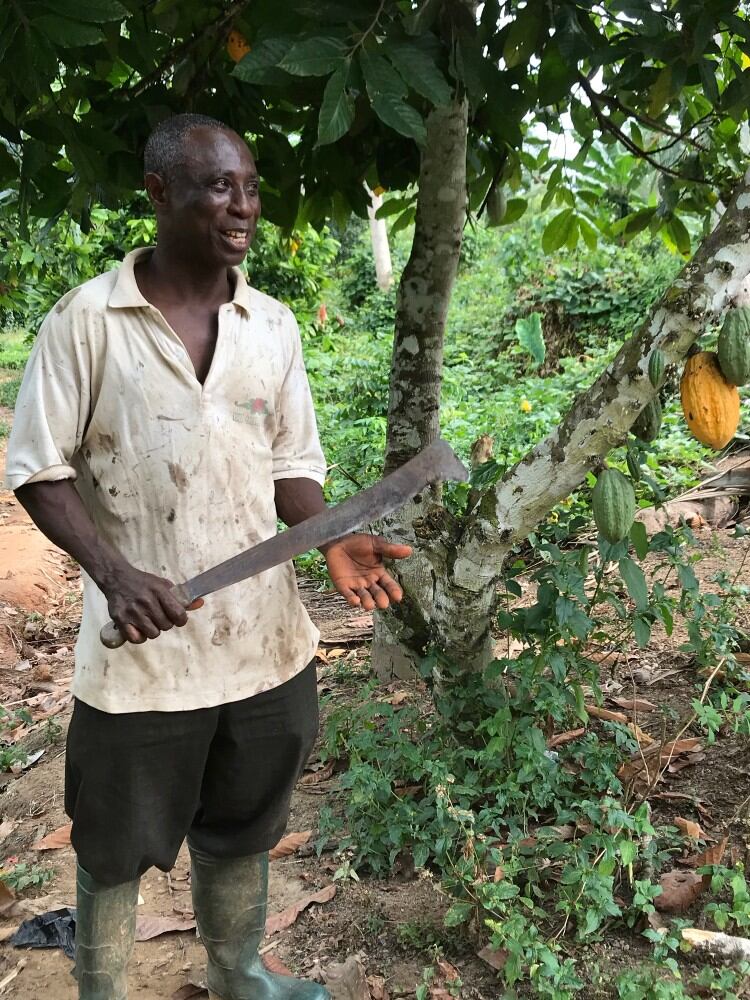
“The government gets benefit,” he insisted. “Sometimes they show us the foreign price for cocoa, they say it for us to hear. So we compare it to what we are paid when we sell our cocoa, and realize that we are being cheated.”
His trust in Ghana Cocoa Board to do right by farmers was low, but his faith in Kuapa Kokoo was high. So long as more than one LBC is operating in an area, farmers can choose among buyers for their cocoa. I asked Aboagye why he has chosen to sell to Kuapa Kokoo for so long (he has been the recorder since 2005).
“The reason why I really like Kuapa is they have good policies for farmers,” he replied. “At the end of the season, Kuapa brings cutlasses to farmers, and they also bring premiums. They take their time to come to our farms, to teach us how to take better care of our farms.”
Gold mining
But even support from Kuapa Kokoo cannot counter the forces that make Aboagye’s livelihood more difficult every year. The changing climate is one. Another is gold mining.
Ghana’s colonial name was the Gold Coast, and gold is the country’s chief export, earning it more than cocoa. Large industrial mines, mostly foreign-owned, excavate around the country, but so do smaller illegal operations called galamsey. Galamseyers use liquid mercury to process the gold dust, often poisoning themselves and wreaking havoc on local water supplies.
So far, Aboagye said, Susanso residents haven’t had any issues with their stream water. But across the country, galamsey gold mining was putting the future of Ghana at risk.
“Ghana!” Aboagye said, seeming lost in thought. “Ghana. If we don’t stop the galamsey, our future will be very, very bad. It’s by God’s grace that they didn’t get into our land, into our streams [in Susanso].”
I asked why people would do such destructive and personally dangerous work, when they could be farming cocoa.
“We, the farmers, prefer cocoa, but those who love the galamsey, they would … destroy the cocoa farms to get more [gold]. In this area, everyone wants to make money. If you want to get money into your hands quickly, you just do galamsey. Our government tried to stop them, but it didn’t work.”
“Are they just too powerful?” I asked.
“It’s not about power,” Aboagye replied. “The government sent police to come take care of them, but as soon as [the police] left, they came back.”
He looked out across the village. “It’s about to rain,” he said. Moments later, a downpour blanketed Susanso, droplets falling fat and fast. The noise on the metal roof covering the patio was deafening.
I turned off my now-useless audio recorder, and took out the chocolates I had brought. Shouting that one was milk and one was dark. I shared the bars with Aboagye. He preferred the dark, saying, “It’s a bit bitter, it doesn’t have too much sugar.”
Aboagye watched the downpour. “It’s very good,” he said. “It’s been so long since it rained. It’s very good.”
- Author’s note: Conversions from Ghana cedis to US dollars were current as of 21 September 2020. During our interview, I asked questions in English and Daniel Aboagye replied in Twi. My thanks to Benjamin Setor Gbadago for translating.
About 'Dr Chocolate'
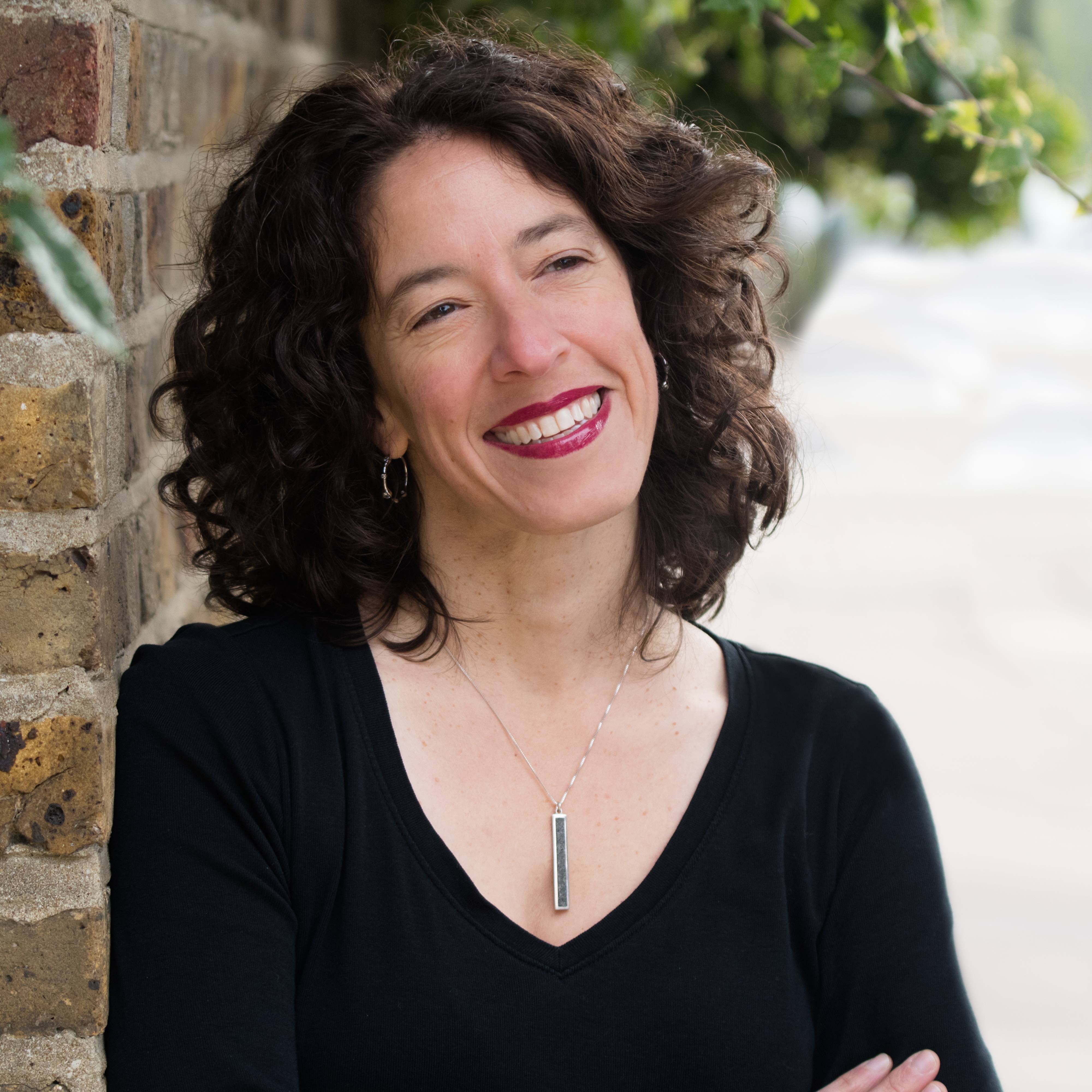
Dr Kristy Leissle is a scholar of cocoa and chocolate. Since 2004, her work has investigated the politics, economics, and cultures of these industries, focusing on West African political economy and trade, the US craft market, and the complex meanings produced and consumed through chocolate marketing and advertising. Her recent book, Cocoa (Cambridge: Polity, 2018) explores cocoa geopolitics and personal politics, and was #3 on Food Tank’s 2018 Fall Reading List.

